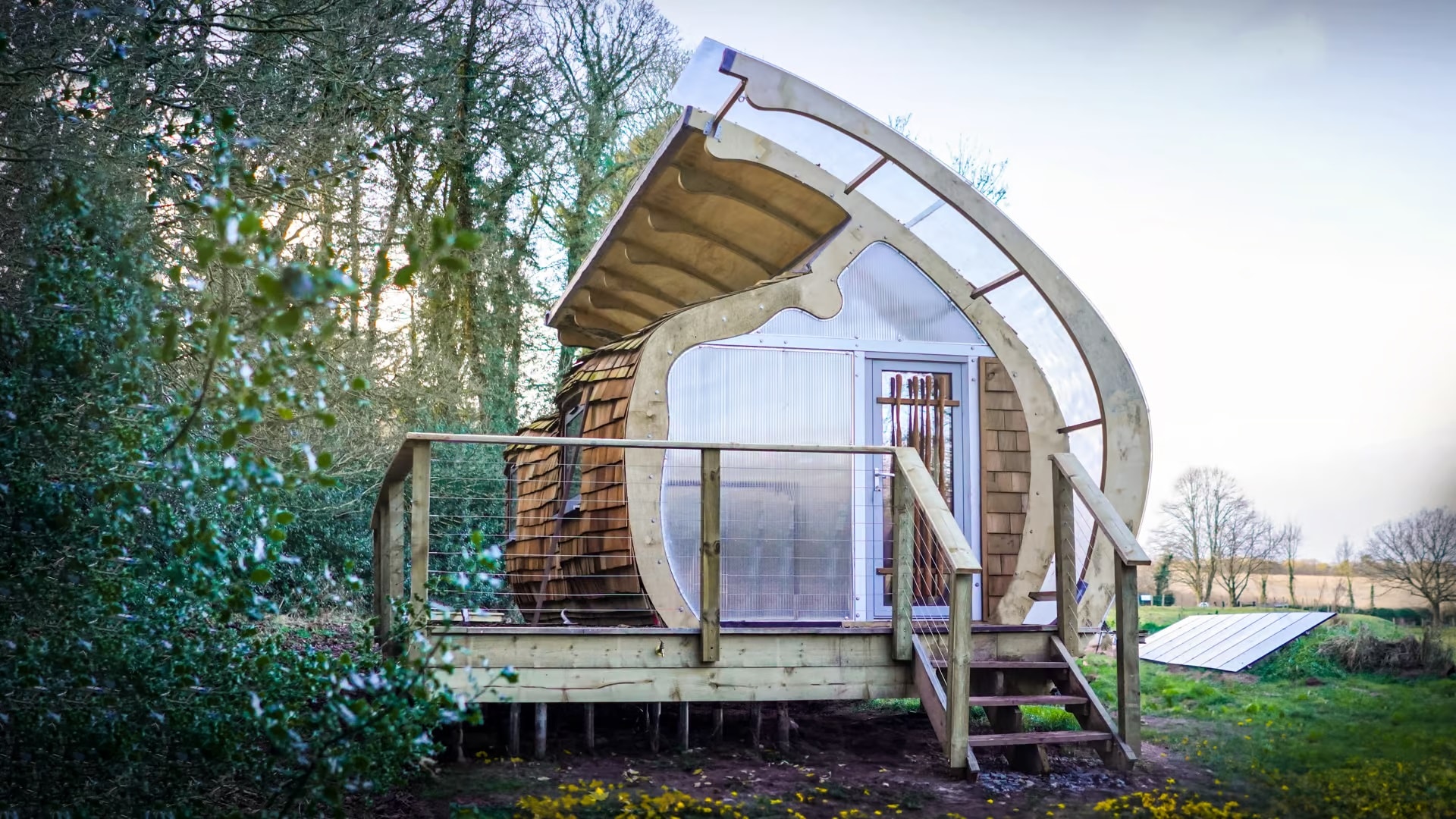By Gary Fleisher
The modular housing industry represents a transformative shift in construction practices globally, marking a move towards more sustainable, efficient, and cost-effective building methods. While both England and the United States have embraced this trend, significant differences highlight the unique trajectory of England’s industry, especially through the lens of Modern Methods of Construction (MMC).
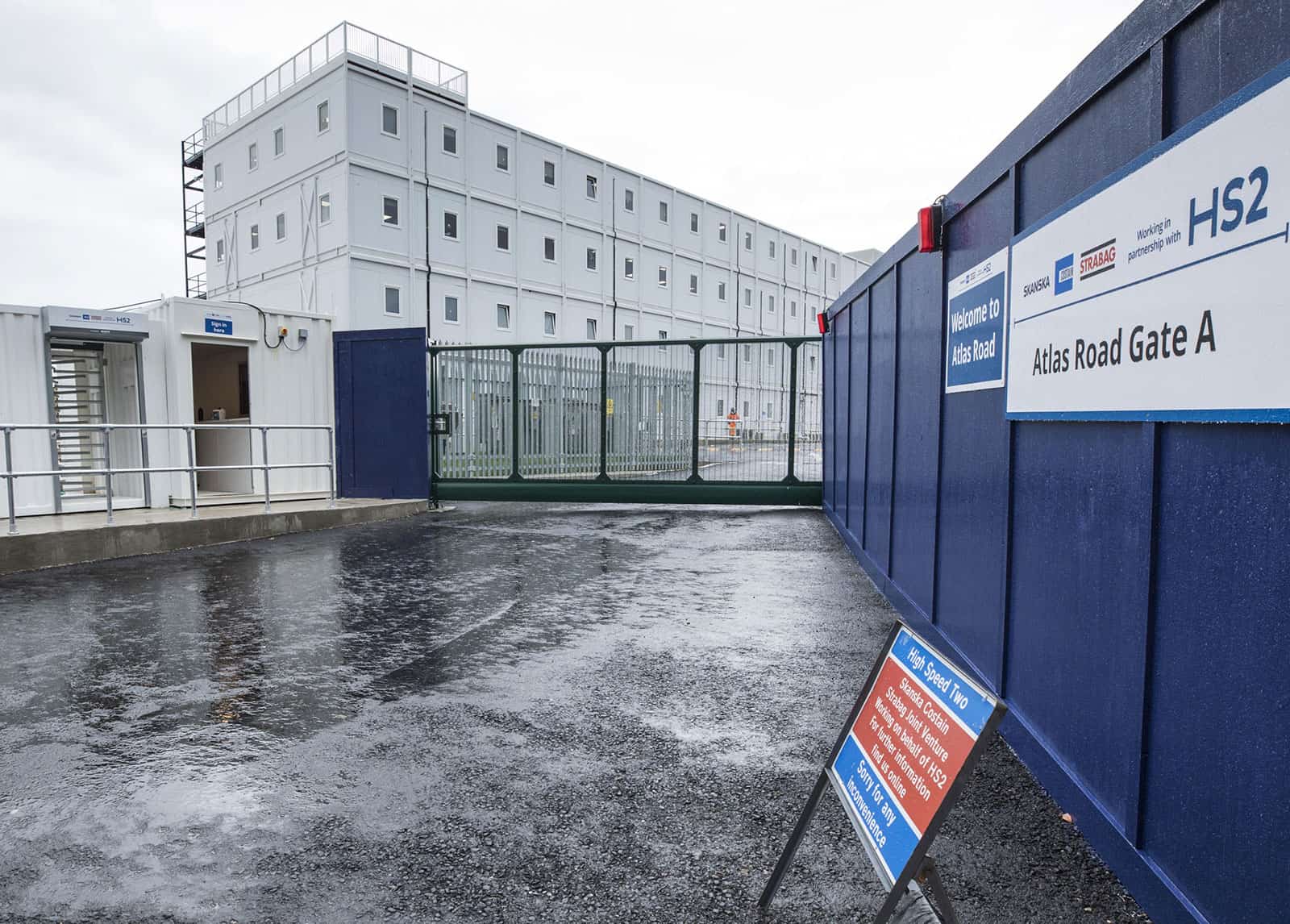
all photos of Premier Modular
Market Maturity and the Catch-up Game
Historically, the United States has led in modular construction, particularly in commercial and industrial sectors. This longstanding experience has resulted in a mature market with a diverse range of practices and technologies. England, however, has been making rapid strides. In recent years, the country has seen a burgeoning interest and investment in modular housing. This surge is part of a broader strategy to embrace MMC, which encompasses a range of innovative construction practices, including off-site manufacturing and on-site assembly. The goal is not just to catch up but to leapfrog, harnessing cutting-edge technology to redefine housing construction.
Stringent Regulations and the Push for Sustainability
Building regulations in England are notably rigorous, with a strong emphasis on energy efficiency and sustainability. These standards are not just guidelines but imperatives driving the modular housing industry towards greener practices. The MMC approach is inherently more sustainable, reducing waste and energy consumption. Unlike the U.S., where building codes can vary wildly, England’s unified and stringent regulations ensure that modular homes across the country meet high sustainability and quality standards.
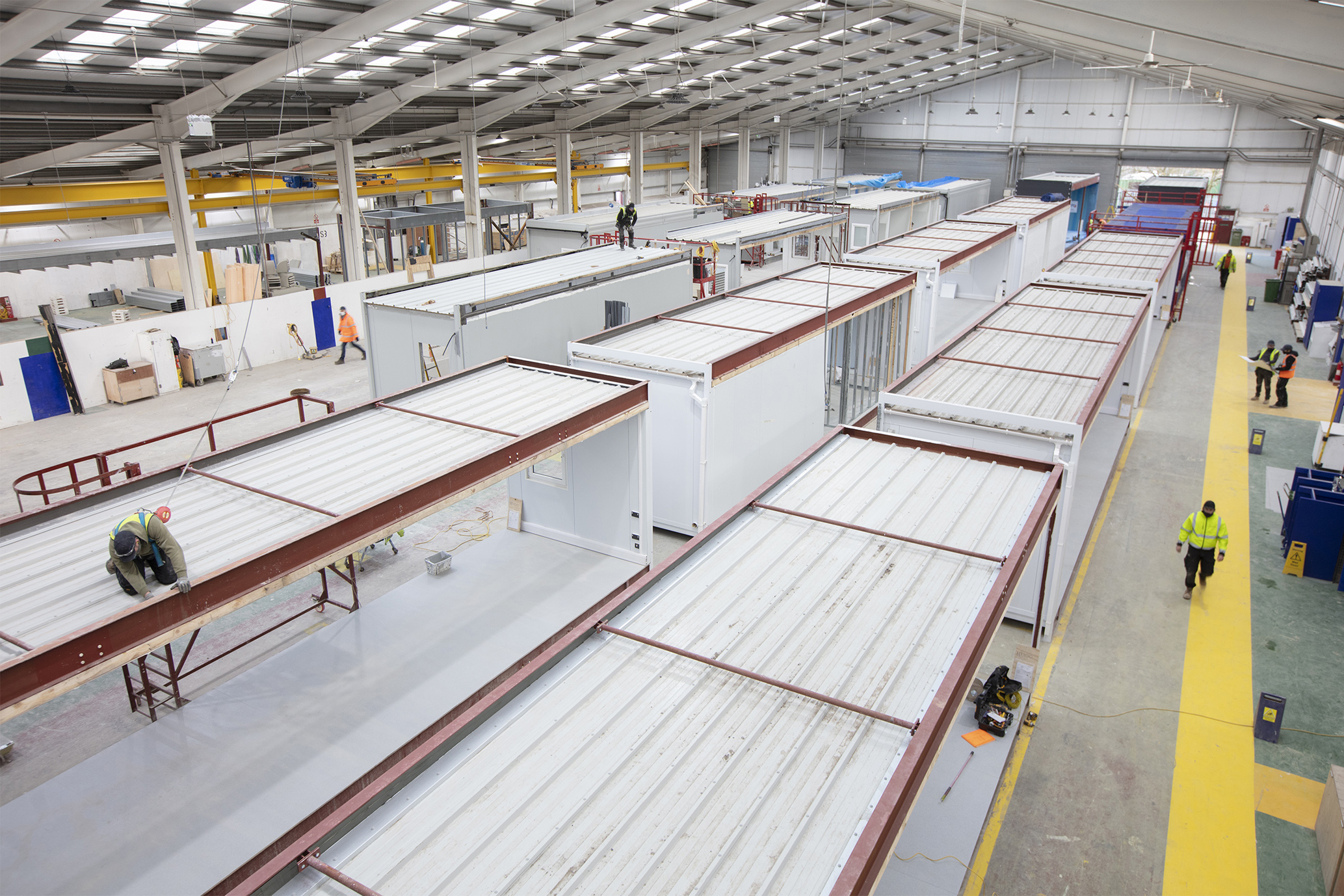
Aesthetic Evolution and Modern Design
While American modular homes often adhere to traditional designs, England’s modular housing is increasingly synonymous with modernity and innovation. Reflecting broader European architectural trends, English modular homes boast contemporary aesthetics and innovative designs. This evolution is partly driven by the MMC’s flexibility, allowing architects to experiment with new materials and forms, pushing the boundaries of what modular housing can look like.
Addressing the Housing Crisis with MMC
The U.S. has seen modular construction employed in a broad spectrum of applications, from individual homes to extensive commercial projects. England’s focus, however, has been sharply tuned towards addressing its critical housing shortage. Through MMC, the country is not just building homes faster but is also creating affordable and social housing solutions. This targeted application reflects a strategic approach to modular housing, using it as a tool to solve specific societal challenges.
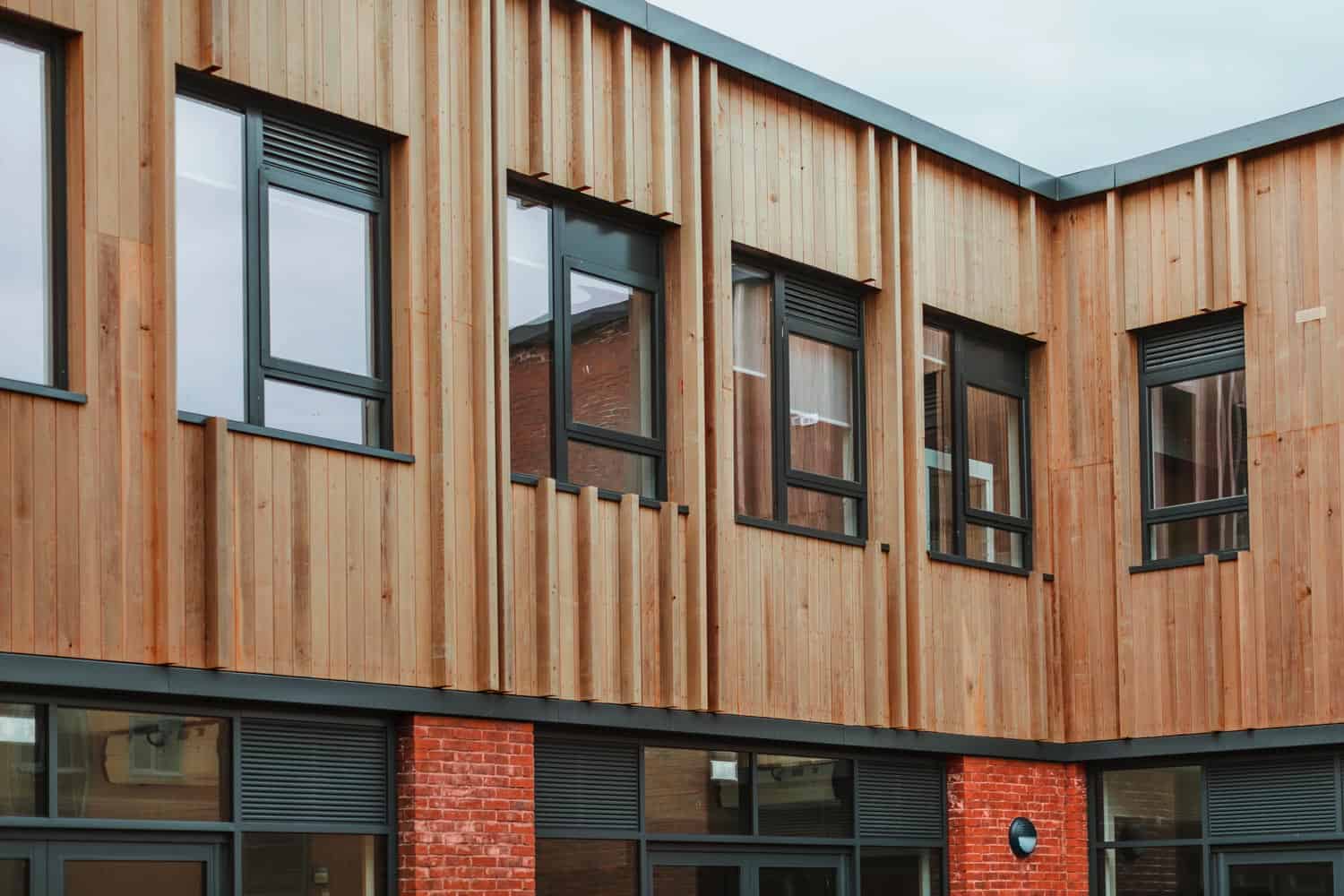
Shifting Public Perception
In England, modular housing had to overcome initial public skepticism, partly rooted in the association with post-war prefabricated buildings. However, as modern modular homes demonstrate their durability, comfort, and aesthetic appeal, perceptions are changing. The quality and sophistication of MMC are dispelling old prejudices, showcasing these homes as desirable and modern living spaces.
Industry Players and Local Innovations
The modular housing sector in England is marked by a vibrant ecosystem of innovators and companies, driven by the demand for sustainable and efficient construction. These players are not just adopting existing practices but are also pioneering new technologies and methods, contributing to the global evolution of modular housing.
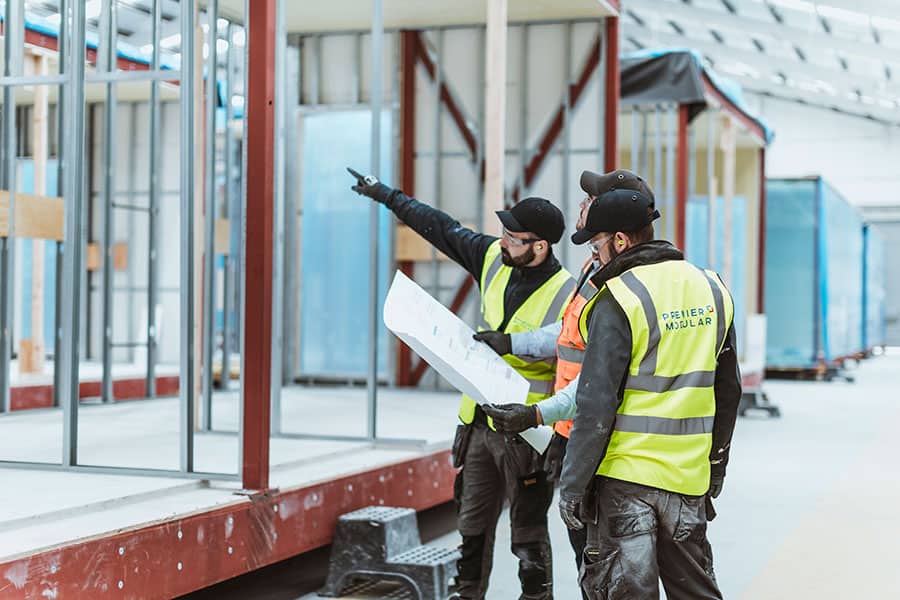
Aggressive Pursuit of Green Building Practices
While both England and the U.S. are increasingly focusing on sustainable construction, England’s policies and regulatory environment foster a more aggressive pursuit of green building practices. MMC in England is not just a construction method; it’s part of a broader sustainability agenda, aligning with national goals for carbon reduction and environmental stewardship.
The Economics of Modular Housing
The cost and financing of modular housing in England reflect its focus on quality and sustainability. While this might sometimes mean a higher initial price point compared to traditional construction, the long-term savings in energy, maintenance, and environmental impact are substantial. The government and private sector are also evolving financing models to support the adoption of MMC, recognizing its potential for long-term economic and societal benefits.
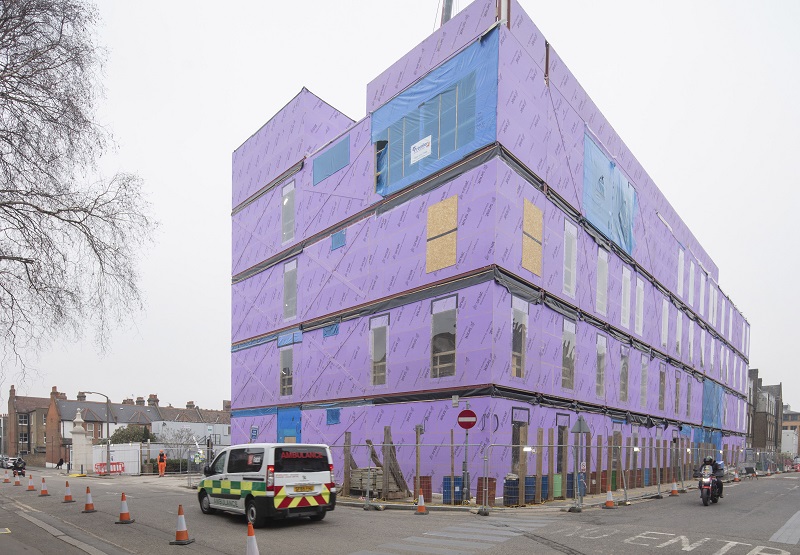
The Future: Convergence and Global Influence
As England’s modular housing industry evolves, it’s likely to influence and be influenced by global trends. The increasing focus on sustainability, technology integration, and quality is setting a new standard for modular housing worldwide. England’s embrace of MMC is not just about building homes but about reimagining the construction industry’s future.
While England’s modular housing industry shares some common ground with its U.S. counterpart, its distinct trajectory is shaping a unique landscape. Through the adoption of Modern Methods of Construction, England is not just addressing its immediate housing needs but is also positioning itself at the forefront of a global shift towards more sustainable, efficient, and innovative building practices. For industry players, investors, and consumers, understanding these nuances is crucial to navigating and contributing to this rapidly evolving sector. The journey of England’s modular housing industry is not just about constructing buildings but about building a vision for the future.
.

